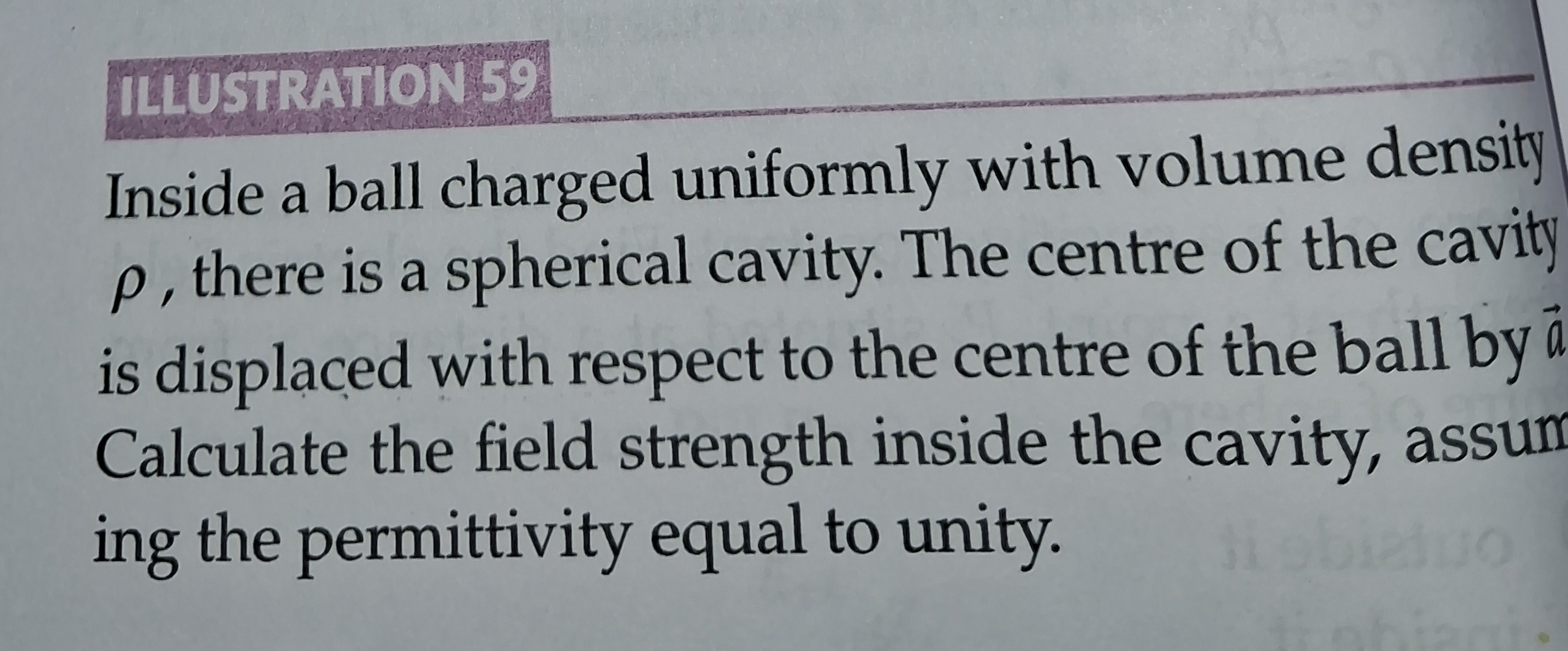Question
Question: ILLUSTRATION 59 Inside a ball charged uniformly with volume density $\rho$, there is a spherical cav...
ILLUSTRATION 59 Inside a ball charged uniformly with volume density ρ, there is a spherical cavity. The centre of the cavity is displaced with respect to the centre of the ball by a. Calculate the field strength inside the cavity, assuming the permittivity equal to unity.

E=3ϵ0ρa
Solution
The electric field inside a uniformly charged solid sphere of radius R and volume charge density ρ at a position r from its center is given by E=3ϵ0ρr. This formula is valid for ∣r∣≤R.
We can solve this problem using the principle of superposition. Imagine the charged ball as a superposition of two charged spheres:
- A solid sphere of radius R with uniform charge density ρ, centered at the origin O.
- A solid sphere of radius r with uniform charge density −ρ, centered at a (the center of the cavity).
Let r be the position vector of a point P inside the cavity, measured from the center of the ball O.
The electric field at point P due to the first sphere (the complete ball) is: E1=3ϵ0ρr
The electric field at point P due to the second sphere (the one that forms the cavity, with charge density −ρ and center at a) is: E2=3ϵ0−ρ(r−a)
The total electric field E at point P inside the cavity is the vector sum of E1 and E2: E=E1+E2 E=3ϵ0ρr+3ϵ0−ρ(r−a) E=3ϵ0ρr−ρr+ρa E=3ϵ0ρa
This result shows that the electric field inside the cavity is uniform, meaning it has the same magnitude and direction at all points within the cavity. The field is directed along the vector a, from the center of the cavity towards the center of the ball if ρ>0, and in the opposite direction if ρ<0.
The permittivity is assumed to be unity, which is interpreted as the relative permittivity ϵr=1. Thus, the permittivity of the medium is ϵ=ϵ0ϵr=ϵ0.
